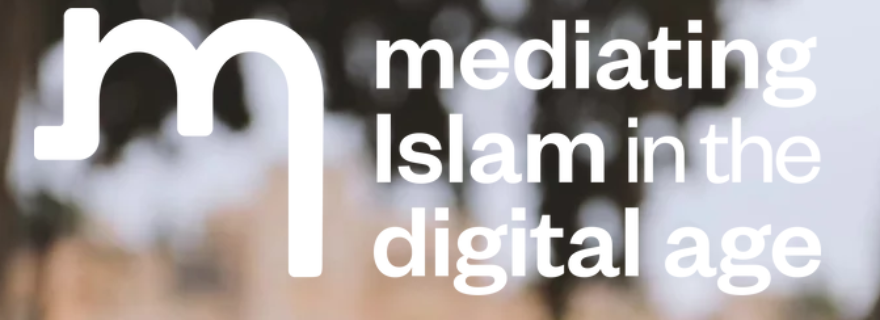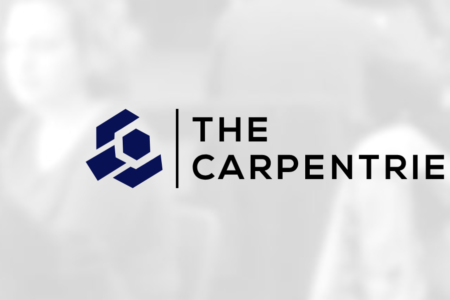Mediating Islam in the Digital Age
Mediating Islam in the Digital Age is a project-based network that examines the impact of digital technologies on the practice and the study of Islam. The work that the Centre for Digital Scholarship carried out in MIDA gave us a better understanding of the fundamentals of Machine Learning.
Mediating Islam in the Digital Age (MIDA) is an international network formed by researchers interested in the numerous challenges today’s Islamic world is exposed to due to the rise of new digital technologies. Among other topics, MIDA examines the process of digitisation and its far-reaching implications for the nature of religious practices, the outreach of social institutions and the methodology of Islamic studies. The MIDA consortium consists of 25 universities, research institutes and non-academic partners in the Netherlands, Belgium, France, Germany, Qatar, and Spain, and it is centrally coordinated by the Centre National de la Recherche Scientifique (CNRS) in Paris. The programme is funded by a grant from the Department for Research and Innovation of the European Commission.
Importantly, MIDA aims to combine scholarly research with an intensive training programme. During the past three years, the consortium has enabled 15 early career researchers (ESRs) to carry out PhD research on a broad range of topics, all connected to the impact of digital technologies on the practice and the study of Islam. As part of this programme, the MIDA ESRs were also given the opportunity to follow a large number courses and workshops to deepen their understanding of digital research methods and their applications within Islamic Studies.
The Centre for Digitial Scholarship at Leiden has been involved in the MIDA consortium since the very start of the programme. This involvement has taken various forms. In April 2021, for instance, the CDS organised a workshop for the MIDA ESRs, which concentrated specifically on the annotation and analysis of audio-visual materials. The workshop, which lasted five days, included interactive lectures on topics such as programming in Python, intellectual property, annotating video recordings in ELAN, and Computer Vision.
The CDS also provided practical forms of support during three of the PhD projects that were carried out a part of MIDA. Zeynep Aydin's project, for example, analyses the Jihadist terror attacks perpetrated in Europe since 2015 and assesses, more specifically, the ways in which Islam is represented in social media posts referring to such attacks. With help from the CDS, Aydin managed to download about 6 million tweets published in the week following the Charlie Hebdo attack in January 2015. She is currently analysing specific patterns within these tweets, using techniques in the field of social network analysis. The CDS also offered assistance to Justin Benavidez, whose research focuses mostly on the writings of the Andalusian Islamic scholar Muhammad al-Qurtubi. During his secondment in Leiden, Benavidez produced machine-readable versions of many of the Arabic texts he focuses on, and this enabled him to examine these texts computationally.
Mustafa Colak, thirdly, is enrolled as a PhD student at Leiden University, and his research is supervised by Dr. Petra de Bruijn. His PhD project, entitled State-Sponsored Turkish Historical Drama Series in Foreign Context, focuses on the Turkish TV show Payitaht: Abdülhamid, which is produced and broadcasted by the state-supported channel TRT. The show depicts the life and political career of the last significant Sultan of the Ottoman Empire, Abdulhamid II. Some of the more critical viewers of the show have noted that the pan-Islamist policies of the sultan present strong similarities with the protectionist and expansionist political agenda of the current Turkish President, Recep Tayyip Erdogan. To be able to examine this social and cultural dimension more systematically, Colak has decided to study the symbolism that is used within the television series. Analyses of symbols such as the star of David, the Star and Crescent or the Pentagram, displayed alongside Abdulhamid II's attempts to protect and to modernize the Ottoman empire, can help to expose and to understand the ways in which the series conveys such political messages.
To support Colak’s research, CDS’s Ben Companjen and Peter Verhaar have developed a method for the automated recognition of all occurrences of the star of David, the Star and Crescent, the keys of heaven and the Pentagram in the first two seasons of Payitaht: Abdülhamid. these series consisted of more than 50 episodes of about two hours each. This method was based on algorithms in the field of Computer Vision. At the start of this process, Colak has developed an elaborate dataset consisting of about 1500 images displaying the symbols that he considered to be charged politically. These images have subsequently been used to train a convolutional neural network. The model that was built using this approach predicts scores for every single frame in these video files, giving an indication of the probability that these frames contain instances of the relevant symbols. Although some further work is needed to refine the results of this object detection process, the initial results look very promising.
Developing the knowledge and the skills needed to design and to and tweak a machine learning application often demands a considerable amount of time and effort. During this specific project, the learning process was abated considerably because of a fruitful collaboration with consultants and developers from the Netherlands EScience Center, an organisation with extensive expertise on the development and the application of research software. Following a successful application for a Small-Scale Initiative on Machine Learning, Peter Verhaar and Ben companjen held biweekly meetings with programmers at the eScience center during the second half of 2021, and, because of this support, the machine learning application they were working on progressed much more quickly than expected initially.
The preliminary results of Colak’s research were presented during a workshop which was organised from 6 to 10 December at the Lorentz Centre in Leiden. The workshop, entitled The Turks are Coming!, was attended by an international and interdisciplinary team of researchers and TV producers. The main aim of the workshop was to investigate the socio-political impact of Turkish television series on a national level, as well as its outreach to the international world of media consumers. Peter Verhaar gave a workshop on Computer Vision, and Ben Companjen explained the steps that can be followed to publish research data in line with the FAIR data management guidelines. During a series of lively discussions, the participants further explored the potential and the shortcomings of digital research tools applied to the analysis of Turkish television drama.
For the CDS, the involvement in the MIDA programme has proved to be highly productive. The work that was carried out during the creation of a computer vision application has clearly led to a better understanding of the fundamentals of Machine Learning, and this specific form of expertise will undoubtably be very useful in future projects. Most importantly, however, MIDA gave us the opportunity to expand our network and to become acquainted with a large group of enthusiastic scholars and developers, all interested in the possibilities and the implications of digital scholarship.





